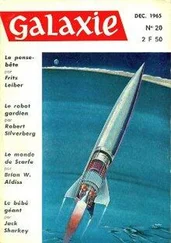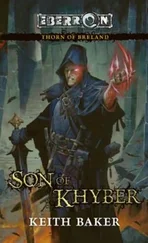"A letter I wrote," she said, without any trace of anger.
"Yes," I said.
"What did it say?" she asked.
I had made a photocopy of the letter at State Police headquarters. I reached into the back pocket of my jeans and took out the sheet of paper. I unfolded it and handed it to Julia.
She looked at it for several seconds, her face a blank. "What did you want to know?" she said finally. There was no anxiety in her voice.
"It certainly sounds like a letter you would have written to someone you were involved with," I said.
"It is," she said matter-of-factly. "And I am."
/ am. Her use of the present tense felt like an assault. My hope that Julia would explain everything away evaporated. My back started to ache again. "Who was…" I stopped myself. "Who is he?" I said.
"She" Julia said pointedly.
It took me a moment to convince myself I had heard her correctly. "You're… seeing a woman?" I said.
"Does that shock you?"
"Well, yes. I mean, not that she's a woman." Now, I had lied. "That you have someone else in your life. And it doesn't sound like something casual or meaningless to you."
"Not at all," she said. "She's sustains me. Like the letter says: From the day I first saw her."
"When did it start?"
"Six or seven months ago."
"And it's still going on?"
"Yes."
"Why didn't you tell me?" I asked. "Is she from the island?"
"She lives in Manhattan. I fly to see her once a week during the summer, when I can." Julia smiled. "Otherwise, we talk by phone, for fifty minutes."
"For fifty…" I stopped short.
Julia shook her head and looked at me as if I was being foolish. "She's my therapist," she said. "Marion Eisenstadt. That's who I wrote the letter to. I never sent it because I thought it was… well… inappropriate, and a little morbid."
I was stuck back on the punch line. "The letter was to your therapist?" I said skeptically.
"I can give you her number if you want to check it out," she said. "I've written to her before."
Could it be? I wondered. Might Julia simply have been reaching out to anyone she could, including North and her therapist? Was it possible that she really had chosen me for a different and much more complete role in her life, the same way I had chosen her? I desperately wanted it all to be true. "I don't need her number," I said.
She read over the letter, then looked up at me. "I was feeling really down that day," she said.
That comment gave me a nice bridge to the second half of my concern. "The verse you wrote at the end makes it sound like you might have been dwelling on death," I led.
"Is that an elegant way of asking me if I was thinking about killing my daughter?" she asked.
"Please understand. I need to ask these…"
"I felt like my life was over, Frank. I felt like I had sold myself to Darwin. Does that answer your question? I didn't know how much worse things could get-until…" She was fighting back tears. "Until I lost Brooke," she said, choking on the words.
"We can talk about this later," I said.
She cleared her throat. "Maybe I asked for this," she went on. "Maybe God is trying to teach me a lesson. All I had to do was leave. But I was weak. Pathetic. And I cared about the goddamn house and the art and all that garbage."
"And you've learned what matters," I said. "You got further than most people get in their lives." I marveled at how quickly I had started taking care of her again.
"If I've already lost you, you should tell me now," she said.
That felt like an ultimatum. Or maybe Julia was simply putting me on notice that she couldn't cope with uncertainty from me. She had lost Brooke. Her marriage was over. Billy might be imprisoned forever. Tess's health was fragile. Wasn't it understandable that she needed to know if she could count on me? Why should I be coy when my heart had an answer for her? "You haven't lost me," I said.
She moved into my arms, running her fingers gently over my back, holding me in a way no other woman ever had, something on the razor edge of raw sexuality and pure nurturance. Each force spoke to a deep and equal need in me. "Stay with me tonight?" I asked.
She glanced at Tess. "I want to stay here a while longer," she said. "I'll grab a cab later and meet you in Chelsea."
"I'll see you later, then," I said.
I was dead tired, but decided I should visit Lilly before leaving the hospital. I planned to be on Nantucket the next day and, with the progress Lilly had already made, I wasn't sure how long she would be an inpatient.
I found her seated in an armchair by her bed, staring out the window. Her blond, curly hair was tied back with a little black bow. I knocked at the door to her room. She glanced at me, then resumed her vigil.
"Mind if I come in?" I asked.
She shrugged dismissively.
I felt as though I might have done something wrong, something to shake Lilly's trust in me. But I couldn't imagine what that might have been. I hadn't breached her confidence by talking to her family members. I hadn't even shared detailed clinical impressions of her with her internist or surgeon. I'd shown up every time I had said I would. Was she still upset I hadn't agreed to continue seeing her as an outpatient?
"Just because you feel she's lost trust," the voice at the back of my mind said, "doesn't necessarily mean she's lost trust in you."
That was true. Even during the briefest psychotherapy, the psychiatrist is a blank screen onto which a patient will project feelings he or she harbors for other important figures in their lives. Lilly's silence and standoffish body language might be meant for me, but might be a reflection of her anger toward someone else, like her husband or grandfather.
I walked in. I saw that Lilly was connected to just two IV bottles. Her leg was still wrapped in gauze, but it looked less swollen. She was less pale. She was getting better.
Without turning her gaze from the window she took a deep breath, let it out. Her sky-blue eyes thinned in a way that hinted at stormy thoughts. "That fucking bastard," she said. "All those years. He really screwed me up."
I sat down in the armchair next to her. "Who are you thinking about?" I asked, already pretty sure of the answer: Lilly's mind had begun to channel her self-loathing into rage at her grandfather.
She shook her head. What looked like a wave of nausea swept over her beautiful face. She swallowed hard. "I was a little girl," she said. "He was getting his rocks off manipulating a child."
"You've been remembering your grandfather," I said.
"His stupid comments," she said, still looking straight ahead. "The way he checked me out."
I waited to see if she would share her memories.
She looked at me. Several seconds passed without a word.
I didn't break the silence. I wanted her to know she was the one in control of what she revealed and what she kept private.
"My friend Betsy was turning nine," Lilly said finally. "I was nine, too. I remember getting dressed for her birthday party. It was summer, and my mother helped me put on a pale yellow, blowzy dress. It had little butterflies embroidered on it in white thread. I guess you could see my underwear through it. Pink cotton underwear." She rolled her eyes. "I remember my grandfather looking at me, some stupid smile on his face." Her hands closed into fists. "And then he said, 'Keep wearing dresses that show your panties, and all the boys will be staring at you. I know I would be.'"
He would be. He would be staring at his granddaughter's panties. "Do you remember how you felt at the time?" I asked.
"I've been trying to bring it all back," she said. "Because you told me to run into the images, not away from them." She paused to collect her thoughts. "Partly, I think I felt foolish, because I didn't really understand what the hell he was talking about. Why would anyone care about my underwear? But the way he looked at me, I knew I was doing something he liked, or at least something that got his attention. And I was sort of proud of it, but embarrassed, too." She shook her head again, in disgust. "The way he said panties. I remember that. He lingered on the word, like he was… tasting it."
Читать дальше












